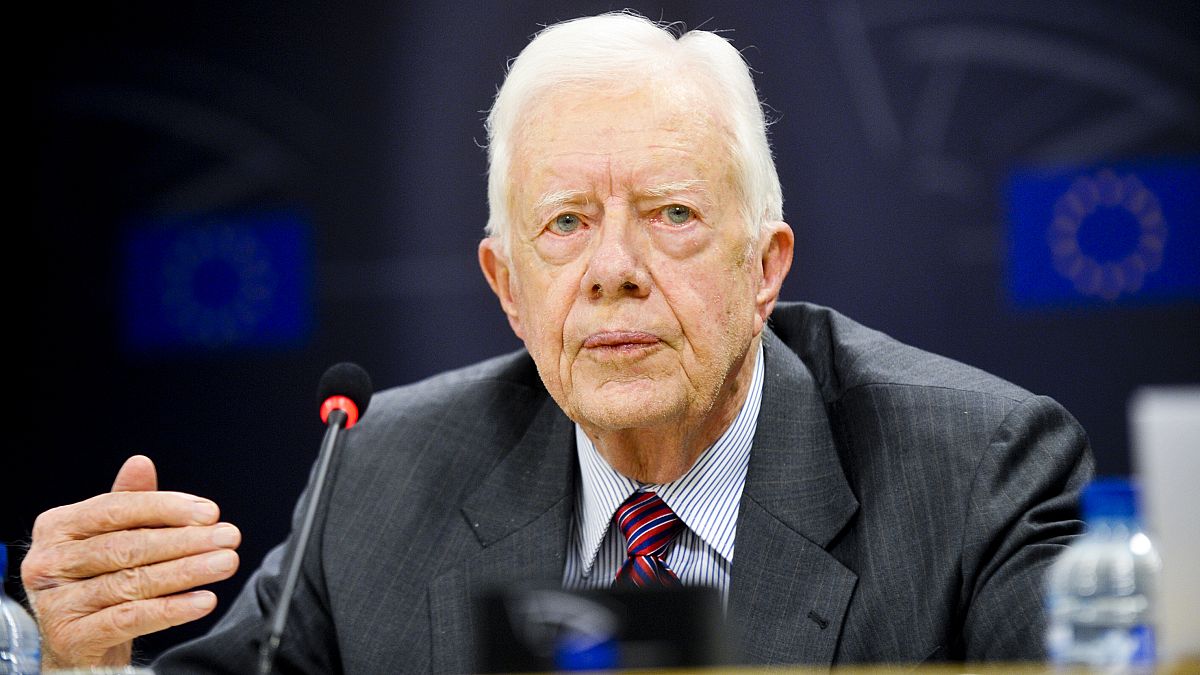Carter’s passing has been met with sorrow across Europe, where leaders have paid tribute to his legacy as an ally and advocate for peace, democracy, and human rights.
Many European leaders have reacted with heartfelt tributes to the news of the passing of former US President James Earl “Jimmy” Carter at the age of 100, honouring his remarkable life and achievements.
Carter, who served as the 39th President of the United States during a critical phase of the Cold War, left a lasting impact on transatlantic relations — a theme highlighted in the condolences shared by European leaders.
European Commission President Ursula von der Leyen expressed her condolences on social media, praising Carter’s “moral leadership” and pointing out that “he served his country with honor—and humanity, with compassion.”
She further praised his global contributions, stating, “His work advanced peace, health, and democracy worldwide.”
European Council President António Costa echoed these sentiments, calling Carter’s legacy “an inspiration” and lauding the late president’s dedication to placing human rights, dignity, and peace at the centre of his political life.
European Parliament President Roberta Metsola described Carter as a “tireless champion for peace and human rights.”
Reflecting on his Nobel Peace Prize, she added, “The award is testament to his decisive role in resolving conflicts that changed the course of history. As an inspiration to many across the globe, his legacy will live on.”
Tributes from European Leaders
French President Emmanuel Macron remembered Carter as “a steadfast advocate for the rights of the most vulnerable” and “a tireless fighter for peace.”
German Chancellor Olaf Scholz noted that the world had lost “a great mediator for peace in the Middle East and for human rights.”
British Prime Minister Keir Starmer further highlighted Carter’s pivotal role in brokering the Camp David Accords between Israel and Egypt, which earned him the Nobel Peace Prize.
“Motivated by his strong faith and values, President Carter redefined the post-presidency with a remarkable commitment to social justice and human rights at home and abroad,” he added.
Hungarian Prime Minister Viktor Orbán reflected on Carter’s unique contribution to Hungary, specifically his role in returning the Holy Crown to the Hungarian people in the late 1970s.
Orbán remarked that this act “gave freedom-loving Hungarians hope in a hopeless time” and underscored Carter’s dedication to empowering oppressed nations.
Ukraine’s President Volodymyr Zelenskyy also expressed his condolences on X, remembering Carter’s commitment to Christian faith, peace, and democratic values. “He was a leader who served during a time when Ukraine was not yet independent, yet his heart stood firmly with us in our ongoing fight for freedom.”
Legacy in transatlantic relations
Carter’s presidency marked a significant era in US-European relations. He reaffirmed the United States’ commitment to NATO during a crucial moment in the Cold War, emphasising the importance of collective defence.
Carter’s efforts to encourage European allies to bolster defence spending were part of his strategy to maintain Western unity against Soviet influence.
“Our commitment is not to war, it’s to peace,” Carter said in a January 1978 speech in Brussels following a NATO summit.
“We believe that the best way to preserve peace — and to uphold the ideals of human rights of the Western allies — is through the military capability we exhibit.”
Carter’s focus on human rights also resonates across Eastern Europe with his “moral leadership” remembered by Von der Leyen as putting pressure on the former Soviet Union, and advancing the cause of freedom in regions under authoritarian control.

